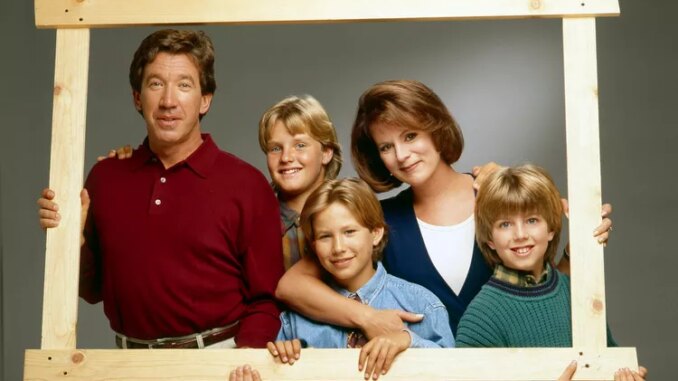
The faint, familiar static hums in the memory, a prelude to the vibrant kaleidoscope of the 1990s. Back then, entertainment wasn't an endless scroll but a meticulously planned ritual: appointment television. Tuesdays belonged to families gathered around the glowing box, drawn in by the promise of laughter, mild domestic chaos, and the distinctive grunt of a man who believed in "more power!" That man was Tim "The Tool Man" Taylor, and his world, Home Improvement, was a cornerstone of that comforting era. Now, almost a quarter-century since its finale, the beloved sitcom is finally arriving on Netflix, not just as a new streaming option, but as a warm, comforting embrace from a bygone age, ready to be rediscovered and re-loved.
For those of us who grew up with it, Home Improvement wasn't just a show; it was a weekly touchstone. Tim Allen’s Tim Taylor, the hyper-masculine, often misguided host of "Tool Time," embodied a particular brand of lovable American dad. His catchphrases – the guttural "Arrr arrr arrr!" grunts, the fervent demand for "more power!" – became cultural shorthand. We understood the gleeful chaos of a man determined to fix everything with excessive force, usually resulting in explosions or structural damage. We knew the unwavering patience of his co-host Al Borland, the stoic counterpoint to Tim's exuberance, whose flannel shirts and "I don't think so, Tim" became iconic.
But Home Improvement's enduring appeal stretched far beyond the comical mishaps on the Binford set. At its heart, it was a family sitcom that, like many of its '90s contemporaries, grounded its humor in relatability. Jill Taylor, played with intelligent charm by Patricia Richardson, was the grounding force, the long-suffering yet loving wife who offered a much-needed dose of reality to Tim’s outlandish schemes. Their three sons – Brad, Randy, and Mark – navigated the universal trials of adolescence, providing relatable storylines about sibling rivalry, first crushes, and finding one's place. And then there was Wilson, the perpetually unseen neighbor, whose folksy wisdom dispensed over the backyard fence offered not just guidance to Tim, but a quiet, philosophical balm to the audience. He was the voice of reason, a comforting sage who helped Tim – and by extension, us – understand the world a little better.
The show thrived on this blend: the slapstick comedy of "Tool Time" perfectly balanced by the genuine warmth and life lessons learned within the Taylor household. It wasn’t preachy; it was authentic. It spoke to the universal desire for a comfortable home, a loving family, and the occasional opportunity to make a big, satisfying mess. It was about imperfection, about trying, about learning, and about the enduring power of a grunt.
The arrival of Home Improvement on Netflix signifies more than just adding another title to a vast library. It’s a generational bridge. For those who fondly remember gathering on the couch, it’s a portal back to a simpler time when Friday nights meant Blockbuster rentals and network TV ruled. It's a chance to revisit familiar faces, to laugh at the jokes we’ve long quoted, and perhaps to discover new nuances in storylines we watched a quarter-century ago. The show, once tethered to specific broadcast times, now becomes accessible on demand, ready for a comforting binge whenever the mood strikes.
But perhaps even more exciting is the opportunity for a new generation to discover the Taylors. Children of the streaming age, accustomed to polished, often dark, modern comedies, will encounter a show that epitomizes a different comedic sensibility – one rooted in wholesome family dynamics, physical comedy, and gentle moralizing. They'll meet a family that feels real in its imperfections, a show that proves humor can be found in the everyday struggles of homeownership and parenthood, all without a hint of cynicism.
As the iconic opening theme song, with its distinctive power tool sound effects, prepares to blare anew from millions of Netflix-connected devices, Home Improvement's arrival isn't just an unboxing of a dusty old VCR tape. It's an affirmation of timeless appeal, a testament to the comfort of familiar faces, and a gentle reminder that sometimes, what we truly need is a little more power – and a lot more laughter – in our lives. The Taylors are coming home, and we’re ready to welcome them back.